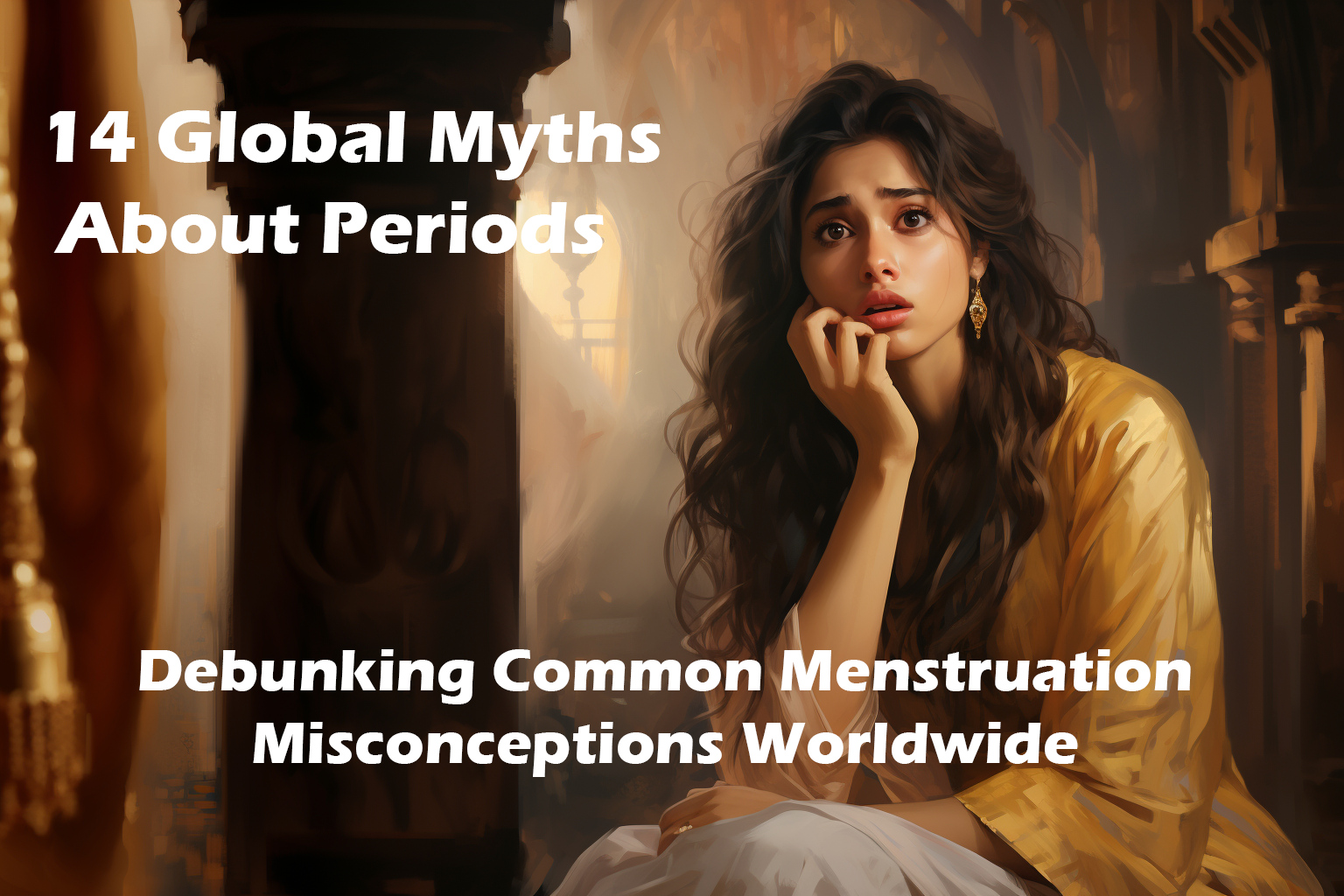Table of Contents
Understanding Period Cramps
What are Period Cramps?
Period cramps, medically known as Dysmenorrhea, are a common but sometimes overlooked part of the menstrual cycle. They’re the throbbing or cramping pains in the lower abdomen that many people experience before and during their periods. Now, you might be thinking, “Why do period cramps happen at all?”
The Science Behind Period Cramps
Period cramps are the body’s response to the shedding of the lining of the uterus, a natural process that happens every month. The uterus contracts to help expel its lining, and these contractions are facilitated by the hormone-like substance called prostaglandins. High levels of prostaglandins can cause more intense contractions—thus more severe pain. It’s like the uterus is having a mini workout session, and sometimes it gets a little too intense.
Causes of Period Cramps
Hormonal Fluctuations
Period cramps are primarily caused by the ebb and flow of hormones, particularly estrogen and progesterone. When their levels fall just before menstruation begins, it triggers the release of prostaglandins, leading to contractions and subsequent pain. It’s a hormonal rollercoaster ride that we unwittingly sign up for every month.
Medical Conditions
While period cramps are usually normal, they can also be a symptom of certain medical conditions like endometriosis, fibroids, and pelvic inflammatory disease. It’s like the body’s smoke signal, telling us that something might need a closer look.
Symptoms Associated with Period Cramps
Primary Symptoms
Along with abdominal pain, period cramps can also bring along a host of unwelcome guests like lower back pain, nausea, diarrhea, and headaches. It’s as if your body decided to throw a party and forgot to invite your comfort.
When to Seek Medical Attention
But when should you sound the alarm? If your cramps are severe, lasting more than a few days, or if over-the-counter medications don’t provide relief, it’s time to talk to a healthcare professional. It’s always better to err on the side of caution
Treatment Options for Period Cramps
Over-the-counter Medications
Non-prescription pain relievers such as ibuprofen or naproxen can help reduce the intensity of period cramps. It’s like a white flag in the war against menstrual pain.
Natural Remedies
Natural remedies like heat therapy, yoga, and certain dietary changes may also provide relief. And who doesn’t enjoy a good hot water bottle cuddle or a restorative yoga session?
Medical Interventions
In some cases, prescription medications or hormonal contraceptives may be recommended. For persistent, severe cramps that interfere with daily activities, doctors might even suggest surgery.
How to Prevent Period Cramps
Lifestyle Changes
Simple lifestyle changes like regular exercise, stress management, and adequate sleep can often prevent or reduce the intensity of period cramps. Because sometimes, prevention is the best cure.
Nutritional Adjustments
Certain dietary changes may also help, like reducing caffeine and alcohol intake and increasing consumption of fruits, vegetables, and whole grains. It’s like setting a dining table that’s both tasty and cramp-friendly.
The Impact of Period Cramps on Mental Health
The Psychological Toll of Period Pain
Period cramps can affect mental health, leading to feelings of depression or anxiety, particularly if the pain is severe or persistent. The mental burden of enduring pain can sometimes be as challenging as the physical pain itself.
The Role of Support and Understanding
Understanding and empathy from family, friends, and colleagues can play a significant role in managing the mental strain. And when the world gets a little more understanding, the weight on the shoulders feels a little lighter.
Conclusion
Period cramps are an unfortunate reality for many. Understanding what they are, why they happen, and how to manage them can make this monthly trial a little less daunting. Remember, there’s no shame in seeking help or taking care of your physical and mental health. After all, as they say, “Your body is a temple, and it’s the only place you have to live.”
FAQs
- How to reduce period cramps?
Lifestyle changes such as regular exercise, maintaining a healthy diet, getting enough sleep, and managing stress can help reduce period cramps. Over-the-counter medications like ibuprofen can also offer relief. Some people find natural remedies such as heat therapy (like using a heating pad) or relaxation exercises (like yoga) to be effective.
- Why period cramps are so painful?
Period cramps are caused by the contraction of the uterus as it sheds its lining during your period. These contractions are triggered by hormone-like substances called prostaglandins. High levels of prostaglandins may cause stronger contractions and thus, more pain.
- How painful is a period cramp?
The intensity of period cramps can vary greatly from person to person. For some, the pain might be mild and hardly noticeable, while others can experience severe, debilitating pain.
- What makes period cramps worse?
Certain factors like unhealthy lifestyle habits (e.g., poor diet, lack of exercise), high stress levels, and certain medical conditions such as endometriosis or uterine fibroids can make period cramps worse.
- What is the best position to relieve cramps?
Different positions work for different people. However, many find relief by lying on their side and pulling their knees into their chest.
- Are period cramps unhealthy?
Period cramps, while uncomfortable, are typically a normal part of the menstrual cycle. However, severe or persistent cramps could be a sign of a more serious condition like endometriosis or pelvic inflammatory disease, and should be evaluated by a healthcare provider.
- What level of period pain is normal?
Mild to moderate pain that can be managed with over-the-counter pain relievers and does not interfere with daily activities is typically considered normal. However, severe pain that doesn’t improve with medication, lasts more than 2-3 days, or disrupts normal activities should be evaluated by a healthcare provider.
- What is the professional way to say period pain?
The professional or medical term for period pain is “dysmenorrhea.”
- Does period pain get worse with age?
Not necessarily. Many people actually experience less period pain as they get older. However, for some, particularly those with certain medical conditions like endometriosis or fibroids, pain can worsen over time.
- Why is day 2 of period the worst?
The menstrual flow is often heaviest on the second day of the menstrual cycle, which can result in stronger contractions and more severe cramps.
- At what age do periods hurt the most?
There isn’t a specific age when periods are most painful. The experience can vary greatly between individuals. Some people may experience more severe pain during adolescence, while others might find that their pain increases with age due to medical conditions like endometriosis or fibroids.
Warning: The information in this article is intended for general informational and educational purposes only. It should not be used as a substitute for professional medical advice, diagnosis, or treatment. If you are experiencing severe period pain, or if your symptoms persist despite home treatment, please consult with a healthcare provider. Always seek the advice of your physician or other qualified health provider with any questions you may have regarding a medical condition. Do not disregard professional medical advice or delay seeking it because of something you have read in this article.




